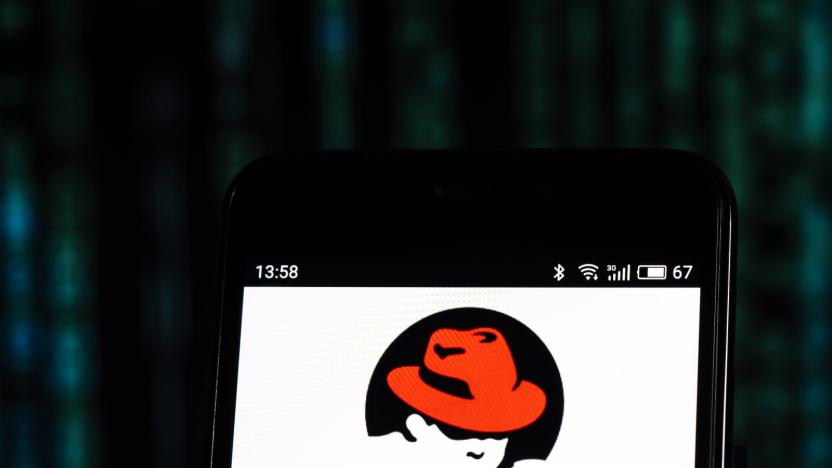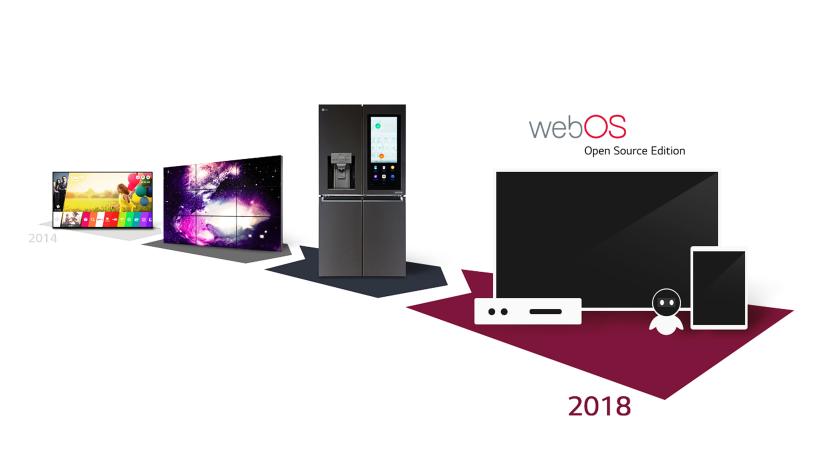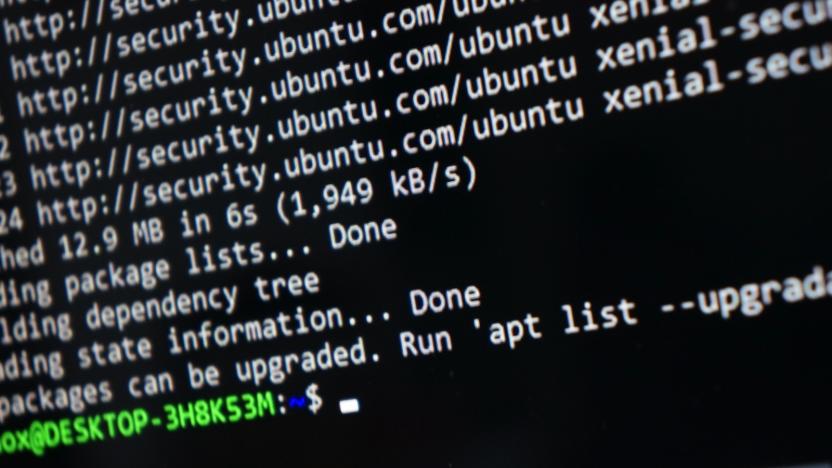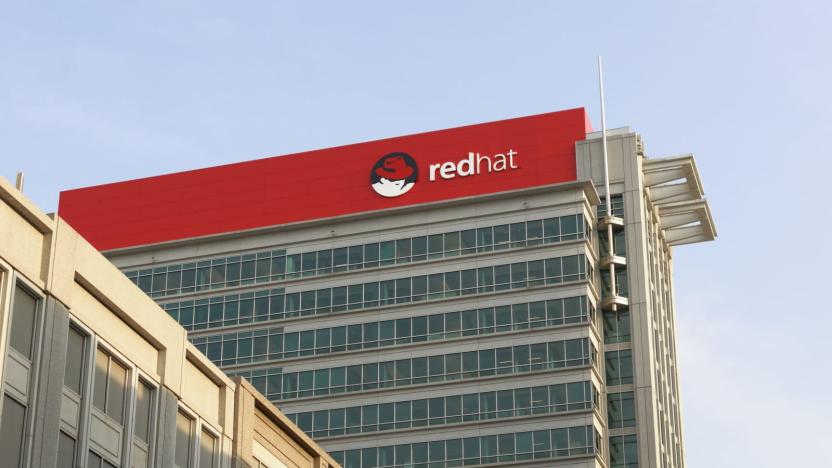opensource
Latest

Have I Been Pwned's code base will be open sourced
It'll help ensure 'a more sustainable future' for the project after a failed acquisition process.

AudioKit's free, feature-loaded synth is available for iPhone
AudioKit Synth One was a minor breakthrough for mobile music making as a free, open source synthesizer that could compete with the heavyweights, but its iPad-only nature limited its audience. You'll be glad to hear, then, that AudioKit Pro has launched a universal version of the app that works with iPhones. It's the same professional-grade hybrid analog/FM poly synth as before, complete with LFOs, oscillators, sequencers and hundreds of presets. It's just crammed into a smaller screen area. You wouldn't want to use this for full-time music creation due to the limited room for controls, but this could be helpful for starting work on a track when you're nowhere near a studio.

Baidu's self-driving car platform can handle parking and speed bumps
Baidu is starting 2019 with a big boost to its autonomous vehicle ambitions. It's launching Apollo 3.5, an updated self-driving platform it claims is the first open source system that can handle "complex" driving in both the city and suburbia. It's now better-suited to the challenges of the road, including parking, narrow lanes and speed bumps. You won't have to wait too long to see it in action -- Udelv is is planning to roll out as many as 100 test vehicles across the San Francisco Bay Area and other parts of the US.

NSA will release a free tool for reverse engineering malware
The NSA has frequently been accused of holding on to info that could potentially improve security, but this time it's being a little less secretive. The agency is planning to release a free reverse engineering tool, GHIDRA, in tandem with the RSA Conference on March 5th. The software dissects binaries for Android, iOS, macOS and Windows, turning them into assembly code that can help analyze malware or pinpoint questionable activity in otherwise innocent-looking software.

EU offers bounties to help find security flaws in open source tools
The European Union believes it has a simple way to bolster its digital security: offer lots of cold, hard cash. The European Commission is launching bug bounties in January that will offer prizes in return for spotting security flaws in 14 free, open source software tools EU institutions use. These include well-known tools like VLC Media Player, KeePass, 7-zip and Drupal as well as something as vital as the GNU C Library.

Anyone can use NVIDIA's physics simulation engine
NVIDIA isn't just showing off its Titan RTX GPU and some clever AI demos -- it also has big news for anyone interested in more realistic computer physics. The company is releasing its hardware-accelerated PhysX simulation engine as an open source project, making it accessible to virtually everyone. It's a recognition that the technology is useful for more than just convincing game physics, NVIDIA said. PhysX can help with more accurate AI and robotics simulations, including self-driving car technology. You could see vehicles and bots that are better-prepared for real-world conditions.

Facebook open-sources its Horizon AI platform
If you could crack open Facebook and see the gears turning under the social network's face, you'd find a surprising amount of artificial intelligence being applied in all sorts of ways. As of today, the company is pulling back the curtain and making Horizon -- the company's end-to-end applied reinforcement learning platform that helps fine-tune that AI -- open source.

IBM buys Linux giant Red Hat to thrive in the cloud
IBM isn't a stranger to Linux by any stretch, but it might just become one of the platform's strongest supporters in the near future -- and shake up the cloud landscape, for that matter. IBM has announced a deal to buy Linux giant and open source enterprise software developer Red Hat for the equivalent value of $34 billion. Provided it clears regulatory hurdles, the acquisition should close in the second half of 2019.

Tim Berners-Lee project gives you more control over web data
After incidents like Facebook's Cambridge Analytica scandal, it'd be understandable if you felt like your data wasn't really under your control. Web pioneer Tim Berners-Lee hopes to put that data back in your hands -- he's been collaborating with people at MIT and elsewhere on a startup (Inrupt) whose open source project, Solid, gives you the final say over personal info. You can decide where the data goes, who's allowed to see certain elements,which apps can access that data. You can peek at the same data with two different apps, and share data with whoever you like.

Tesla will open its security code to other car manufacturers
Tesla might just get into the habit of releasing source code for its in-car tech. Elon Musk has signaled his intention to post the source code for Tesla's car security software, letting any automaker roll it into their own machines. It would be "extremely important" to ensure the safety of future self-driving cars, he argued, and that's not without merit. You really don't want intruders crashing your car or otherwise causing havoc, especially when you're not at the wheel.

The Academy teams up with Linux Foundation for open source tech
The Academy for Motion Picture Arts and Sciences (AMPAS), best known for running the Oscars, is diving into the technology world in a surprisingly new way. Together with the Linux Foundation, it's launching the Academy Software Foundation (ASWF), a neutral forum for the movie industry to organize and collaborate around using open source technology tools. And it's aiming to reach far beyond the film world and into other media industries, like virtual reality and sound engineering. The ASWF is the result of a two-year investigation into the tools being used by the movie industry. The Academy discovered that 80 percent of the film world is already relying on open source technology, but it's been difficult to keep track of licensing and different versions of that software.

Google, Facebook, Microsoft and Twitter unite to simplify data transfers
Four of the biggest technology companies are banding together to make it easier for users to download and transfer their data between services. Google, Microsoft, Facebook and Twitter formally announced The Data Transfer Project (DTP) today, an open-source initiative to create new tools that "enable people to freely move their information across the web," Damien Kieran, Data Protection Officer at Twitter explained. It's early days, but the group has published a white paper that details its vision for an easier, more flexible "data portability ecosystem." The group says it wants an open dialogue with developers and users alike moving forward.

Tesla releases source code for some of its in-car tech
Tesla doesn't have many fans in the open source crowd. It based its car platforms on open platforms like Linux and BusyBox, but it has gone years without sharing the source code their license (the GPL) requires. The company is finally setting things right, though -- more or less, that is. It has posted the source code for both the material that builds the Autopilot system image as well as the kernels for the Autopilot boards and the NVIDIA Tegra-based infotainment system used in the Model S and Model X. While they don't represent the absolute latest code, Tesla is promising to keep pace with newer releases.

AsteroidOS is an open alternative to Wear OS you can install today
When AsteroidOS first started working on a Linux-based smartwatch platform back in 2015, the device category was still fairly new. Now, the first stable version of the OS is finally available for download, providing an Android-compatible alternative to Wear OS. It can display smartphone notifications, weather data, calendar entries, alarms and timers, as well as music playback controls. To encourage developers and those who love tinkering with their devices to create custom applications and watchfaces for the platform, AsteroidOS also released a Software Development Kit along with tutorials.

Purism's privacy-focused phone will support Ubuntu Touch
Purism's security-focused smartphone, the Librem 5, will come with support for Ubuntu Touch when it ships next year. According to the company, which made its mark building ultra-secure, open platform laptops, the operating system will be "well-supported and tightly integrated," with future compatibility assured.

Glitch launches its 'YouTube for app creators'
Fog Creek Software (led by well-known entrepreneur Anil Dash) has spent about a year testing Glitch, a sort of YouTube for app creators where people can create, modify and host code in an easy to use, collaborative environment. And now, it's ready for public consumption: Glitch has dropped the beta tag and is now officially available to everyone. The site lets you upload working code for everything from websites to VR experiences, and encourages you to "remix" them regardless of your skill level. You don't even have to figure out where to launch them, as Glitch automatically hosts your work.

LG wants to take webOS beyond TVs with 'Open Source Edition'
WebOS used to power HP's long-dead Palm devices and early tablets, but since LG got a hold of it in 2013, it's mostly been associated with smart TVs and refrigerators. LG is hoping to push the the platform beyond that, however, with a new release called webOS Open Source Edition. As the illustration above shows, it's hoping developers will adopt it for devices like tablets, set-top boxes and (I think) robots.

Google's Pixel 2 portrait photo code is now open source (update: not quite)
Of all the AI-related features inside the Pixel 2 and Pixel 2 XL, the portrait mode is arguably the most impressive -- Google manages to produce dramatic-looking depth-of-field effects without relying on dual cameras or other exotic hardware. And now, it's sharing some of those secrets with the rest of the world. The company has opened up the source code for DeepLab-v3+, an AI-based image segmentation technology similar to that which helps Pixel 2 phones separate the foreground and background. It uses a neural network to detect the outlines of foreground objects, helping to classify the objects you care about in a scene while ignoring those you don't.

Open Source turns 20: Here’s how it all started
In the dead of winter 20 years ago, Netscape — inspired in part by a treatise on Linux and free software development — released the source code for its Netscape Communicator web browser. The move was unprecedented. This was a publicly traded company that had just reported some disappointing financials announcing to the world that it would make the core of its product available to thinkers, tinkerers and the insatiably curious. Over the days that followed, a cadre of software developers and advocates agonized over a crucial question: What should this kind of stuff be called? After some prolonged discussions and a few phone calls with Netscape, they had their answer.

Red Hat buys the creator of a Chrome-based OS for servers
The underpinnings of Chrome OS have found their way into the server room in a very roundabout way. Red Hat has acquired CoreOS, the creators of an operating system for containerized apps (Container Linux) that shares roots with both Google's Chromium OS project and Gentoo Linux. The $250 million deal promises to help Red Hat fulfill its dreams of helping people use open code to deploy apps in any environment they like, whether it's on a local network or multiple cloud services.








